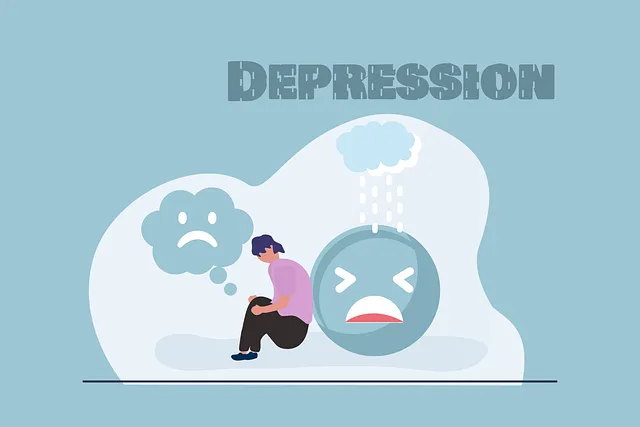The media's portrayal of mental health significantly shapes public understanding and support, with positive representations reducing stigma and negative portrayals exacerbating it. The Kaiser Permanente mental health center in Westminster takes a proactive approach by offering diverse workshops on stress management and mental wellness coaching, aiming to normalize conversations about mental health as highlighted in reviews. They collaborate with media creators to foster accurate, sensitive content and leverage resources like reviews to guide individuals towards necessary support, challenging stereotypes and promoting inclusive practices for improved access to care and enhanced well-being.
Mental illness representation in media significantly impacts public perception and understanding of mental health. This article explores the challenges and offers solutions through a case study of the Kaiser Permanente mental health center in Westminster, reviewing their approach to accurate and compassionate portrayal. We deconstruct stereotypes prevalent in media and present strategies for positive change. Additionally, it discusses future prospects, emphasizing continuous improvement and community collaboration at the Kaiser Permanente Center to foster more inclusive representations of mental illness.
- Understanding the Impact of Media Portrayal on Mental Health Perception
- The Current State: A Review of Kaiser Permanente Mental Health Center's Approach in Westminster
- Challenges and Misconceptions: Deconstructing Stereotypes in Media Representation
- Strategies for Positive Change: Enhancing Mental Illness Portrayal in Media
- Future Prospects: Continuous Improvement and Community Collaboration at the Kaiser Permanente Center
Understanding the Impact of Media Portrayal on Mental Health Perception

The media plays a significant role in shaping public perception about mental health, often influencing how individuals understand and respond to various conditions. Positive representations can foster self-awareness exercises and encourage support for those struggling with mental illness. Conversely, negative or stereotyped portrayals can lead to stigma, misinformed judgments, and even increased isolation for affected individuals. This is particularly relevant when considering the impact on communities like Westminster, where accessible resources such as the Kaiser Permanente mental health center reviews can guide folks towards much-needed support.
Accurate media representation is crucial for promoting inner strength development and effective risk management planning for mental health professionals. By presenting diverse narratives and challenging stereotypes, media can help normalize conversations around mental health, making it easier for individuals to seek help without fear of judgment. This, in turn, can lead to improved access to care, better outcomes, and enhanced well-being for those navigating mental health challenges.
The Current State: A Review of Kaiser Permanente Mental Health Center's Approach in Westminster

The Kaiser Permanente mental health center in Westminster takes a holistic approach to addressing the complex issue of mental illness representation in media. By integrating diverse communication strategies, the center aims to foster understanding and emotional healing processes within the community. They organize regular workshops focused on stress management, targeting various age groups and demographics. These initiatives reflect a commitment to not only providing direct care but also empowering individuals with tools to navigate and reduce the stigma associated with mental health challenges.
Kaiser Permanente’s review highlights a necessary shift towards inclusive practices in media representation. The center recognizes that accurate portrayal of mental illness can lead to improved public discourse and support systems, ultimately enhancing access to care. Their strategies demonstrate a forward-thinking approach, ensuring that emotional healing processes are accessible and tailored to the unique needs of those seeking support.
Challenges and Misconceptions: Deconstructing Stereotypes in Media Representation

The media has long played a significant role in shaping public perception, often influencing how we understand and respond to various social issues, including mental health. When it comes to mental illness representation, however, the industry faces numerous challenges and perpetuates misconceptions that require attention. Stereotyping is a prevalent issue; characters with mental health struggles are often depicted as solely negative or dramatic, reinforcing harmful ideas that isolate those who may be struggling silently.
This misrepresentation has real-world consequences, especially when audiences, including those seeking support at Kaiser Permanente mental health centers in Westminster, encounter these distorted views. It’s crucial to challenge these stereotypes and offer more nuanced portrayals. Encouraging self-esteem improvement and providing guidance on mental wellness journaling exercises or conflict resolution techniques can be part of the solution, helping to educate and foster a better understanding of mental health within communities.
Strategies for Positive Change: Enhancing Mental Illness Portrayal in Media

The media plays a significant role in shaping societal perceptions about mental illness. To foster positive change, it’s imperative to implement strategies that accurately and sensitively represent individuals living with various mental health conditions. One such approach is encouraging collaboration between mental health professionals and media creators. By involving experts from Kaiser Permanente mental health center reviews Westminster, for instance, content producers can gain valuable insights into the nuances of different disorders, ensuring more informed and empathetic storytelling.
Additionally, promoting accessible resources like Stress Management techniques, Mental Wellness Coaching Programs Development, and guidance on Mental Wellness Journaling Exercises can help normalize conversations around mental health. These strategies collectively contribute to a more inclusive media landscape that not only challenges stereotypes but also empowers viewers to seek support when needed, potentially leading to improved mental wellness outcomes for all.
Future Prospects: Continuous Improvement and Community Collaboration at the Kaiser Permanente Center

The Kaiser Permanente mental health center in Westminster has set an exemplary standard for healthcare institutions by consistently striving for improvement in their services. Future prospects at this center focus on fostering a collaborative environment with the community, leveraging the latest research and techniques to enhance emotional well-being promotion. By integrating innovative practices, they aim to design comprehensive Mental Health Education Programs that cater to diverse needs.
One of their key strategies involves building resilience among individuals, ensuring they are equipped to manage mental health challenges effectively. This holistic approach not only promises better patient outcomes but also positions the center as a leader in community mental health care. Through continuous collaboration and adaptation, Kaiser Permanente Westminster aims to revolutionize mental illness representation in media and real-life support systems.
The representation of mental illness in media has significant implications for public perception and support systems. By challenging stereotypes and misconceptions, we can foster a more inclusive and empathetic society. The Kaiser Permanente mental health center in Westminster serves as a model for improving media portrayal through its comprehensive approach, community collaboration, and continuous improvement strategies. As we move forward, it is essential to build on these initiatives to ensure that media accurately reflects the diversity of mental health experiences, ultimately enhancing support and reducing stigma. This holistic effort can lead to positive changes in how society views and treats individuals with mental illnesses.






